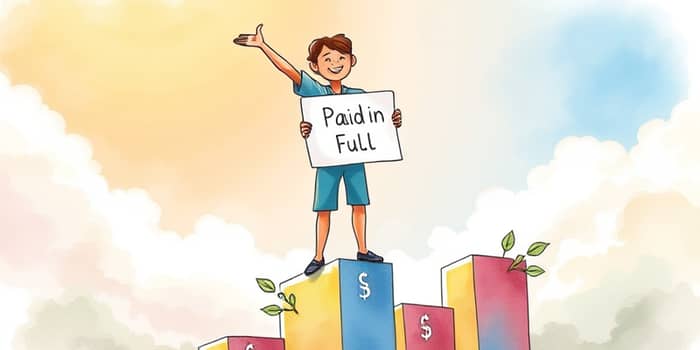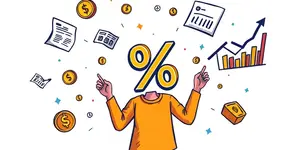Debt can feel like a storm cloud casting a shadow over your finances. For many, the cycle of juggling credit card balances, personal loans, and high-interest rates leads to feeling overwhelmed by mounting bills. Debt consolidation offers a lifeline, combining multiple obligations into a single, streamlined solution.
For many individuals facing credit card debt and loans, the stress can feel unrelenting. Each statement can represent not just a financial obligation, but a source of anxiety that affects daily life and relationships.
Understanding the Basics of Debt Consolidation
At its core, debt consolidation is a financial strategy that pools various debts into one new loan. By negotiating a single manageable monthly payment, borrowers can simplify their repayment schedule and reduce the mental clutter associated with tracking multiple due dates. Consolidation does not erase debt, but it restructures it under potentially more favorable terms.
Imagine replacing five different statements, each with a separate interest rate and due date, with one coherent agreement. This approach not only declutters your finances but also can improve your focus on long-term goals such as saving for retirement or building an emergency fund.
Types of Debt Consolidation Solutions
- Debt Consolidation Loans: Installment loans tailored to merge outstanding debts into a single fixed-rate loan, offering predictable payments over a set term.
- Balance Transfer Credit Cards: Credit cards with 0% or low introductory APR, typically lasting 12 to 21 months, designed to transfer high-interest balances and eliminate interest if paid off within the promotional period.
- Home Equity Loans or Lines of Credit: For homeowners, tapping into home equity can yield lower interest rates, though it puts your property at risk if payments are missed.
Each option carries unique advantages and trade-offs, so evaluating your personal circumstances and long-term objectives is essential before choosing a route.
Benefits of Consolidating Your Debt
When executed thoughtfully, debt consolidation can unlock several financial and psychological benefits. First, it offers potentially lower interest costs over time, especially for individuals with strong credit profiles. Securing a lower rate can translate into substantial savings over the life of the loan.
Second, the simplicity of one payment reduces the likelihood of missed deadlines, supporting a healthier payment history. Consistency in payments can gradually improve your credit score, opening doors to better borrowing opportunities in the future.
Third, freeing yourself from the stress of managing multiple accounts can have emotional advantages. The clarity and focus gained by consolidating debts often lead to more disciplined budgeting and spending habits, setting the stage for lasting financial resilience.
Consider the story of Maria, who consolidated $25,000 in credit card and medical debts. By moving her balances into one fixed-rate installment consolidation loan, she reduced her total monthly payments by $300 and eliminated variable interest charges that once soared unpredictably.
When to Consider Debt Consolidation
Not every debt scenario warrants consolidation. To decide whether this strategy aligns with your needs, evaluate your situation against these key scenarios:
- When you qualify for significantly lower rates than your current debts.
- If you’re carrying high-interest balances, such as credit card debt above 18% APR.
- When you feel overwhelmed by multiple payments and want to streamline your finances.
- If you’ve established a clear budget and are committed to avoiding new debt.
Conversely, think twice if your credit score is poor, as you may face unfavorable terms. If your total debt is modest enough to pay off within a year, the fees and effort of consolidation might outweigh the benefits. Finally, without a solid plan to curb future spending, consolidation alone won’t solve underlying financial habits.
How to Get a Debt Consolidation Loan
Pursuing a consolidation loan demands careful planning. The following table outlines a structured approach to securing and using the loan effectively:
After consolidation, maintain discipline by making on-time payments and avoiding the temptation to accrue new balances on cleared accounts.
Impact on Your Credit Score
Initially, a hard inquiry for the loan may cause a small dip in your credit score. However, as you pay down balances and demonstrate consistent on-time payments, your score can rebound and even surpass previous levels. Lowering your credit utilization ratio by consolidating multiple credit lines into one loan can deliver a lasting positive effect.
Additionally, bringing past-due accounts current halts further damage to your credit history. Over time, a clean repayment record on your consolidation loan can serve as a pillar of a stronger credit profile.
Alternatives and Real-World Tips
- Debt Management Plans: Work with a nonprofit credit counseling agency to negotiate reduced interest rates and create a structured repayment plan.
- Snowball or Avalanche Methods: Tackle smaller balances first for quick wins or high-interest debts first to minimize interest costs.
- Bankruptcy: A last-resort option that carries significant long-term credit implications, reserved for extreme situations.
Beyond selecting a consolidation path or alternative, cultivating sustainable financial habits is paramount. Craft a realistic budget that allocates funds for debt repayment, savings, and essential living expenses. Regularly review and adjust your plan to reflect changes in income or unexpected costs.
Embracing a growth mindset toward money management—viewing each payment as a step toward freedom rather than a chore—can transform the way you relate to debt and spending. Remember, consolidation is a tool, not a cure-all. Pair it with mindful budgeting and self-awareness to achieve true financial wellness.
Conclusion
Debt consolidation can be a powerful strategy for regaining control of your finances, reducing interest costs, and simplifying monthly obligations. By understanding the various solutions, evaluating your readiness, and following a clear plan, you position yourself for success. Whether you opt for a consolidation loan, balance transfer, or another path, the ultimate goal remains the same: establishing a sustainable, debt-free future. Take the first step today by assessing your debts, exploring options, and committing to disciplined financial habits.
With clarity, determination, and the right tools, you can navigate out of the maze of multiple debts and toward a horizon of stability and peace of mind.
References
- https://www.investopedia.com/terms/d/debtconsolidation.asp
- https://www.experian.com/blogs/ask-experian/pros-and-cons-of-debt-consolidation/
- https://www.discover.com/home-loans/articles/the-pros-and-cons-of-debt-consolidation/
- https://www.equifax.com/personal/education/debt-management/articles/-/learn/what-is-debt-consolidation/
- https://www.fightbills.com/blog/2024/december/what-are-the-benefits-of-debt-consolidation-/
- https://www.experian.com/blogs/ask-experian/how-to-get-a-debt-consolidation-loan/
- https://www.experian.com/blogs/ask-experian/how-to-consolidate-debt/
- https://www.bankrate.com/loans/personal-loans/how-debt-consolidation-loans-work/










